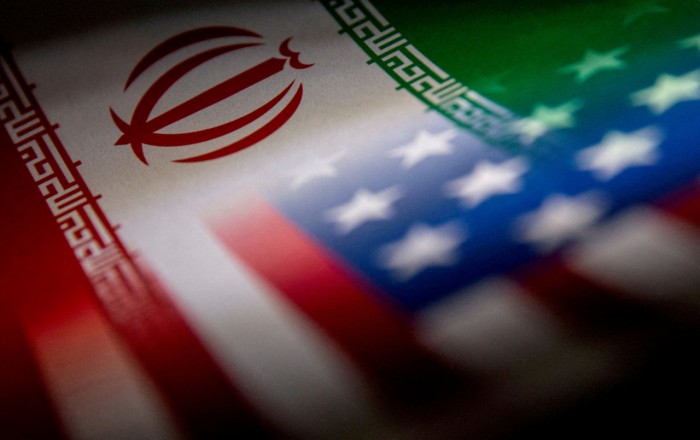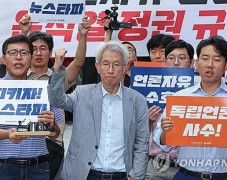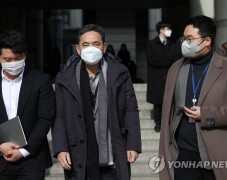$6b in Iranian assets once frozen in South Korea now in Qatar, key for…
페이지 정보
검찰타임즈 작성일23-09-29 10:54 조회1,436회 댓글0건본문
The Iranian and US flags are seen printed on paper in this illustration taken January 27, 2022. (Reuters)
DUBAI, United Arab Emirates — Iran and the United States will exchange prisoners on Monday after some $6 billion once frozen in South Korea reached Qatar, a key element of the planned swap, officials said.
Iranian Foreign Ministry spokesman Nasser Kanaani was the first to acknowledge the swap would take place Monday. He said the cash sought for the exchange was now in Qatar.
An individual with direct knowledge of the deal, who spoke to The Associated Press on condition of anonymity given the exchange had yet to be concluded, said that both Iranian and U.S. officials had been notified by Qatar that the money had been transferred from Switzerland into the Gulf Arab nation.
Kanaani made his comments during a news conference aired on state television, but the feed cut immediately after his remarks without explanation.
“We witnessed freezing of parts Iranian assets in some countries including South Korea," Kanaani said. "As part of our policy of active foreign diplomacy, fortunately Iran’s frozen assets in South Korea were released and God willing today the assets will start to be fully controlled by the government and the nation.”
“On the subject of the prisoner swap, it will happen today and five prisoners, citizens of the Islamic Republic, will be released from the prisons in the US,” Kanaani added. “Five imprisoned citizens who were in Iran will be given to the US side reciprocally, based on their will. We expect these two issues fully take place based on the agreement.”
He said two of the Iranian prisoners will stay in the US.
Iranian news agencies immediately afterward reported, quoting Kanaani, that the prisoner swap would be done on Monday. There was no other information immediately released by the agencies and Washington did not acknowledge the comments.
The announcement by Kanaani comes weeks after Iran said that five Iranian-Americans are now under house arrest as part of a confidence-building move while Seoul allowed the frozen assets, held in South Korean won, to be converted into euros. That money was then sent to Qatar, an interlocutor between Tehran and Washington in the negotiations.
The planned swap has unfolded amid a major American military buildup in the Persian Gulf, with the possibility of US troops boarding and guarding commercial ships in the Strait of Hormuz, through which 20% of all oil shipments pass.
The deal has also already opened President Joe Biden to fresh criticism from Republicans and others who say that the administration is helping boost the Iranian economy at a time when Iran poses a growing threat to US troops and Mideast allies. That could carry over into his reelection campaign as well.
On the US side, Washington has said the planned swap includes Siamak Namazi, who was detained in 2015 and was later sentenced to 10 years in prison on internationally criticized spying charges; Emad Sharghi, a venture capitalist sentenced to 10 years; and Morad Tahbaz, a British-American conservationist of Iranian descent who was arrested in 2018 and also received a 10-year sentence.
US officials have so far declined to identify the fourth and fifth prisoners.
The five prisoners Iran has said it seeks are mostly held over allegedly trying to export material to Iran.
The final dollar amount from Seoul could be anywhere between $6 billion to $7 billion, depending on exchange rates. The cash represents money South Korea owed Iran — but had not yet paid — for oil purchased before the Trump administration imposed sanctions on such transactions in 2019.
The US maintains that, once in Qatar, the money will be held in restricted accounts and will only be able to be used for humanitarian goods, such as medicine and food. Those transactions are currently allowed under American sanctions targeting the Islamic Republic over its advancing nuclear program.
Iranian government officials have largely concurred with that explanation, though some hard-liners have insisted, without providing evidence, that there would be no restrictions on how Tehran spends the money.
Iran and the US have a history of prisoner swaps dating back to the 1979 US Embassy takeover and hostage crisis following the Islamic Revolution. Their most recent major exchange happened in 2016, when Iran came to a deal with world powers to restrict its nuclear program in return for an easing of sanctions.
Four American captives, including Washington Post journalist Jason Rezaian, flew home from Iran at the time, and several Iranians in the US won their freedom. That same day, President Barack Obama’s administration airlifted $400 million in cash to Tehran.
Iran has received international criticism over its targeting of people with dual citizenship. The West accuses Iran of using foreign prisoners as bargaining chips, an allegation Tehran rejects.
Negotiations over a major prisoner swap faltered after then-President Donald Trump unilaterally withdrew America from the nuclear deal in 2018. From the following year on, a series of attacks and ship seizures attributed to Iran have raised tensions.
Meanwhile, Iran’s nuclear program now enriches closer than ever to weapons-grade levels. While the head of the United Nations’ nuclear watchdog has warned that Iran now has enough enriched uranium to produce “several” bombs, months more would likely be needed to build a weapon and potentially miniaturize it to put it on a missile — if Iran decided to pursue one. The US intelligence community has maintained its assessment that Iran is not pursuing an atomic bomb.
Iran has taken steps in recent months to settle some issues with the International Atomic Energy Agency. But the advances in its program have led to fears of a wider regional conflagration as Israel, itself a nuclear power, has said it would not allow Tehran to develop the bomb. Israel bombed both Iraq and Syria to stop their nuclear programs, giving the threat more weight as it also is suspected in carrying out a series of killings targeting Iran’s nuclear scientists.
Iran also supplies Russia with the bomb-carrying drones Moscow uses to target sites in Ukraine in its war on Kyiv, which remains another major dispute between Tehran and Washington. (AP)








